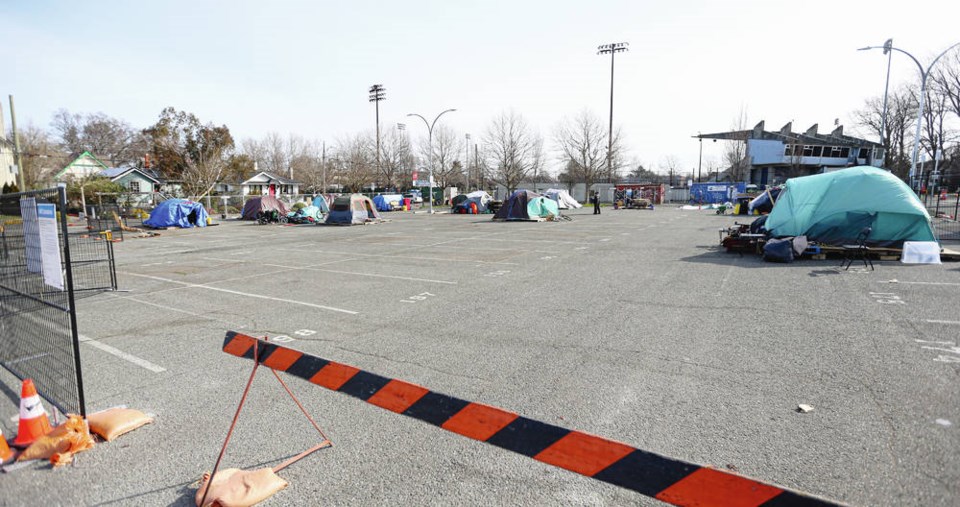A commentary by the CEO of Our Place Society.
I commend the provincial government’s budget for not only investing so heavily in mental health and addiction services, but also opening the door to long-overdue complex-care housing.
It is a bold and much-needed plan that cannot come soon enough, and I encourage the province to quickly develop a successful model.
The timing is also especially welcome when all those camping in our parks are finally being offered shelter or transitional housing.
And while I sincerely hope the vast majority of those who have secured shelter will maintain it until the move into permanent housing, I also know there is a small group who will fail to retain this housing because they are simply too unwell.
Sadly, these troubled few often end up being barred because of behaviours directly related to their mental health and addictions.
They are not barred lightly. My colleagues across the transitional housing sector do their very best to never bar anyone, but some people are so unwell that, for their own safety and that of others, they cannot remain.
These individuals who wander our streets in obvious and alarming distress are not only a great concern to their fellow citizens — even, at times, a source of considerable fear – but are themselves extraordinarily vulnerable.
The women in this group are the most vulnerable and are frequently the victims of sexual violence and abuse that is as stomach churning as it is heartbreaking.
This is why complex care housing is so important. When done properly, it will be a place where these unfortunate outliers can get the help they need from professionals who are properly trained and supported to give it.
The workers in our shelters and transitional housing sites simply do not have the professional clinical qualifications to care for folk who are so unwell.
And while many of those entering complex care will go voluntarily, there will be those who will refuse it.
After decades of work in this field, and years of advocating for those who are homeless and struggling, heartfelt and bitter experience has taught me that, in some situations, there is a need to bring people into this kind of care involuntarily.
Sometimes folk are so unwell that they are in desperate need of help, but because of their illness are utterly unable to make a rational and informed decision in their own best interests.
In these situations, we believe it is the right thing to compel care. We believe that in doing so their rights are recognized – the right to be safe, the right to be housed, and the right to good health.
In doing so, we remove people from incredibly vulnerable and dangerous situations. We believe this should be done only in extreme circumstances and with strong and transparent legal safeguards, limits and boundaries.
I want to be really clear: I am not advocating for the return to the inhumane, often abusive institutions of old.
Instead, I want housing that provides safe, loving and healing care. Furthermore, I believe that involuntary care should only last as long as it takes to stabilize the individual and for them to then make an informed and rational decision about what next steps they want, and are able, to take.
I do not write this lightly and acknowledge that it will be provocative and controversial to some.
I write it, however, because I have spent many, many years of my working life watching, at close quarters, a small group of very vulnerable and untreated people experience the most appalling exploitation and violence on the streets of our cities – avoided, alone, unattended to, stigmatized, and, frankly, left to live and to die miserable, painful and forsaken lives.
So, I unequivocally welcome and endorse the creation of complex care housing in British Columbia. With it there will, finally, be hope and a chance for belonging for some of the most abandoned of our fellow human beings.



